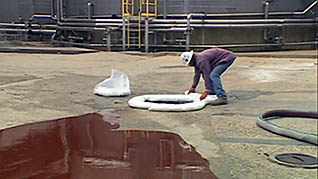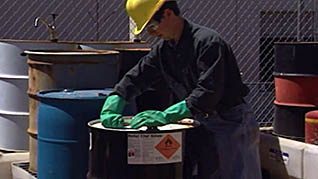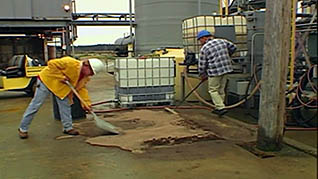Course Overview
This online video teaches viewers about the Best Management Practices (BMP) to protect storm water and run-off. Each year, thousands of beaches are temporarily closed in part due to contaminated run-off. Learning to protect storm water from contamination requires a little education and a little extra effort. This video will educate workers about how to properly manage the supplies and waste at their outside work site. This video describes the different types of waste and how to properly protect the outdoor work environment. By learning how to properly manage materials, supplies, and waste, workers will protect both the environment and their own safety.
Key Audience
Course Topics
Course Detail
Time
Languages
video format
captions
Resources
Lessons
Remediation
Bookmarking
Feedback
Microlearning



